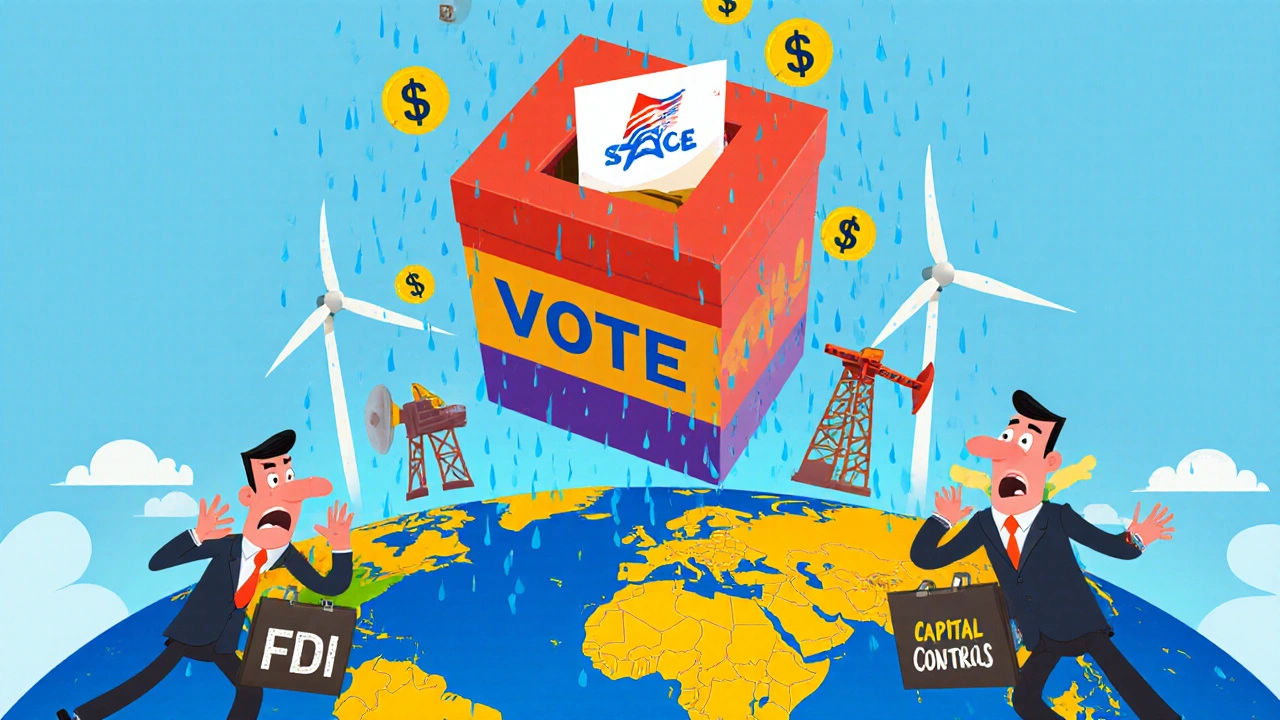Political Regime Risk: How Government Changes Impact Your Global Investments
When you invest in emerging markets, you're not just betting on a company—you're betting on a country’s stability. Political regime risk, the chance that a government change will disrupt markets, laws, or property rights. This isn't theoretical—it’s what happens when a new leader nationalizes industries, cuts foreign dividends, or shuts down stock exchanges overnight. It’s the silent killer of returns in places like Argentina, Nigeria, or Venezuela, where power shifts aren’t always peaceful or predictable.
What makes political regime risk different from regular market volatility? It doesn’t care about earnings reports or interest rates. It cares about who’s in charge, who’s next, and whether the rules will change without warning. This risk ties directly to sovereign risk, where a government fails to pay its debts or blocks foreign investors from pulling money out. And it’s closely linked to geopolitical risk, which includes wars, sanctions, or alliances that shift overnight. These aren’t abstract terms—they’re real forces that can erase years of gains in a single announcement.
You won’t find political regime risk on a balance sheet. But you’ll feel it when your ETF stops trading, your dividends vanish, or your broker freezes your account. That’s why smart investors track more than just stock prices—they watch elections, protest trends, and central bank independence. A country with a history of coups, like Myanmar or Sudan, carries far more risk than one with stable, transparent institutions—even if its GDP looks strong. And while some investors avoid these markets entirely, others use them to find hidden opportunities, betting that instability creates undervalued assets. The key isn’t avoiding risk—it’s knowing how to spot it before it hits.
Below, you’ll find real-world examples of how regime changes affected portfolios, what tools investors use to measure this risk, and how to adjust your holdings before the next headline drops. No fluff. Just what works when the government changes.

Political Regime Risk: How Elections and Policy Shifts Abroad Impact Your International Investments
Elections and policy shifts abroad are now major drivers of investment risk. Learn how political instability affects global markets, which sectors are most vulnerable, and what steps you can take to protect your international investments in 2025.